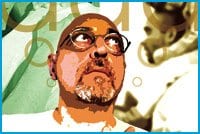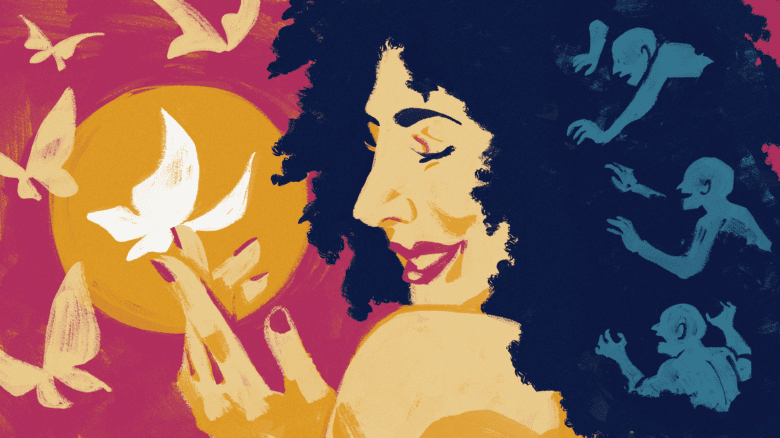Who’s your daddy? The archetype of the father/son relationship is one paradigm that can be used to understand and experience queer men’s sexuality and relationships. It’s an idea that may not work for everyone but it’s long been a potent conceptual framework for me.
Whether it contains overt role-playing or not, sometimes the ways two adult men relate to one another — in bed and out — can have aspects of the familial and paternal with someone who seems “older and wiser” taking charge and offering encouragement and support to someone else who needs it.
For me this is not specifically about age: The first time another man called me “Daddy” in a sexual context I was in my early 20s. I’ve enjoyed swinging on both limbs of that family tree with gusto since then, but for years now I’ve found myself more and more in the dad role, sometimes even with men much older than me.
It’s hard for me to pin down what I even mean by that — it’s a very particular way of perceiving yourself in relation to a fellow human being. A physical example: Probably the most highly charged and fulfilling thing I can do with another man is to put my arm around him and place his head gently on my chest.
In some ways the dad/son dynamic is an emotional and sexual current that runs through my relationship with my lover. It’s not the dominant thread though: He and I are peers in so many ways and I look up to him in many others. But what’s interesting is how often people assume that he’s the top because of his older age and larger build compared to my own.
The urge to relate to another man in a paternally affectionate way comes up a lot in my sexual friendships with others. From my perspective this has to do with an overarching impulse to support, to protect, to nurture and to encourage others. That can become eroticized, but it has a genuine emotional aspect too. It even plays out in rewarding ways during one-off encounters with men I meet. To hold someone in your arms and let them lose themselves there, even if it’s someone you may never see again, feels like an expression of love, a way of seeing them off into the world with care and respect, the way a father might with a departing son.
I don’t know if biological parenting is in the cards for me, at least not for the time being. But at 38 I often experience fatherly feelings of a more chaste and traditional nature, and I find myself wanting outlets to express that feeling — other ways of giving to those in the world around me.
What does any of this say about my relationship with my own father? As a very little boy I was closer to my mother and felt like I had the most in common with her. Maybe it was harder to get to know my father back then; at the time he struck me above all as a big, loud man who slept at weird times (he was a shift worker). While I share a very strong bond with my amazing mom, the older I get the more I realize the ways in which I take after my father. I’m proud to try and emulate him.
My father truly represents what’s often referred to as a self-made man. He was fatherless and impoverished at five, orphaned at 11. The youngest child in his family, he was hauled across the Atlantic Ocean to a new country and shuffled around from one indifferent older sibling to another. By 13 he was on his own, sometimes sleeping in ditches. But before long he was working alongside grown men and paying his own bills and raising a family of his own.
We moved a lot when I was a kid. That was a social challenge with lots of repercussions — but it was because my father was driven to always try and do better for his family.
My father is kind, down-to-earth, hilariously funny, practical, world-wise and caring, someone who has strived to improve the lives of those closest to him. Who wouldn’t want to be more like that?
Perhaps my ultimate goal with all the men in my life — friends and lovers alike — is to earn their trust and respect, to give them reasons to look up to me the same way I admire my own dad.

 Why you can trust Xtra
Why you can trust Xtra


